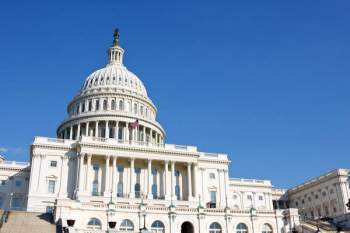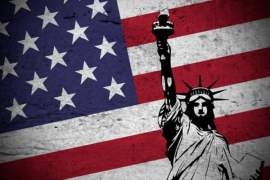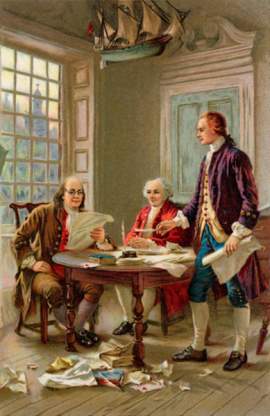
Understanding The Need For A Federal Government

Popular In Constitution
Purpose Of Lifetime Appointment And Pros And Cons Enumerated Powers Bicameral Legislature Background Article 3 Of The Constitution We The People 1st Amendment Who Wrote The Constitution Judicial Review Equal Protection Clause 5th Amendment 10th Amendment Three Fifths Compromise
When America was under British control, colonials often mistrusted or felt abused by overbearing governments. Settlers were commonly imprisoned for failing to pay debts created through unjust tax burdens. The citizens of America were teetering on the brink of revolution from the autocracy's mistreatment.
When America won its Revolution in 1776 the need for an established Federal government was paramount. Federalist leaders such as Alexander Hamilton yearned for a governing body that was powerful enough to impose an effective system of laws, taxes, and policy. The original Constitution established America as a sovereign nation and awarded unanimous power to the Federal Government and the individual State.
The first draft of the Constitution (known as the Articles of Confederation drafted in 1787) created a unique system of checks and balances that separated powers between an executive branch, a representative legislator, and a Federal judiciary system. Initially thought to be fair and balanced, the Constitution was severely flawed due to the exclusion of individual rights.
Fearful of a British replicate, the
Anti-Federalist Party, led by James Madison, George Mason, and Patrick Henry,
attempted to amend the Constitution with an inclusion of individual rights.
Although a firm supporter of individual freedoms, James Madison did not feel
obligated to include such Amendments in the initial Constitution. Madison's
original sentiment expressed a need for an established government and claimed
that individual rights were included in the original Amendments. Although
Madison was a member of the Anti-Federalist Party, he was not originally
engaged in a concerted effort for the proposal of such Amendments.
The initial spark for an individualistic movement was created during the ratification process of the first Constitution. When the Articles of Confederation were adopted the leaders of individual states would routinely meet at an assembly hall to express views or offer ideas on how to improve the Constitution. During these ratification meetings (Congressional hearings) many State leaders and Anti-Federalist members called for an inclusion of a series of individual liberties. The leaders of these movements, most notably Patrick Henry and George Mason, attempted to sway leaders of the states to pass a Bill of Rights, which specifically administered freedoms to the individual citizen. Their efforts were futile in terms of vote (nine out of 13 votes were required for ratification), but not in regards to influence.
James
Madison observed the fervor which these men possessed towards individual
freedoms and soon became active himself. Madison quickly realized that is was
his obligation to lead the movement for the Bill of Rights. Without his
involvement, Madison believed that the United States Government would have
never extended such rights to the individual. Without individual rights, the
American Government would inevitably become a duplicate of the British Empire.
James Madison won election to the House of Representatives
and immediately fulfilled his pledge to draft a set of civil liberties to the
Constitution. On June 8th, 1789, Madison officially revealed his Bill of Rights
proposal and gave a calculated speech in front of Congress. The speech aimed to
answer any doubts or questions raised by the Federalist Party. The proposal itself
was derived from several State Constitutions and ratifying conventions. Madison
used his own State's (Virginia) Constitution, published by George Mason, as a
general framework.
NEXT: What are the Bill of Rights?





















